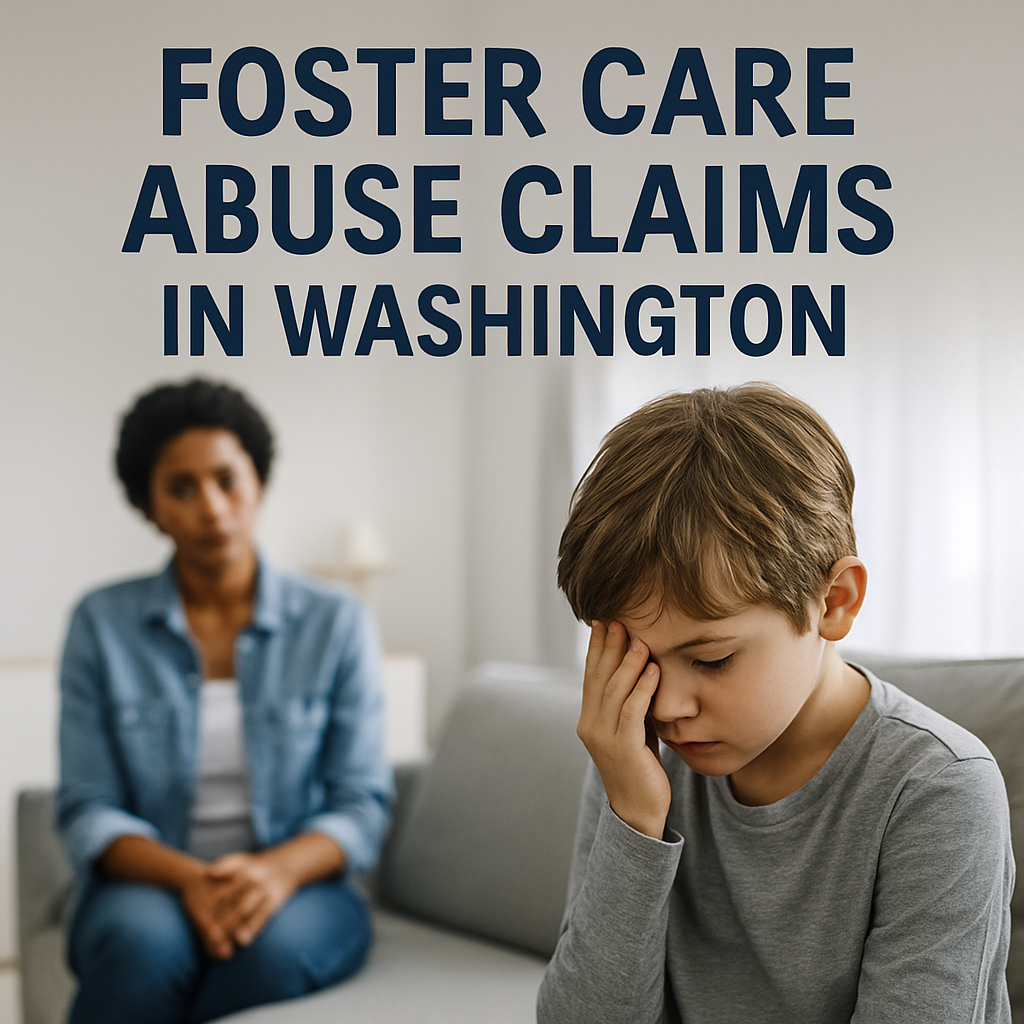Foster Care Abuse Claims in Washington – Accountability for State and Private Agencies
Foster care is supposed to provide safety. For too many children in Washington, it’s become the opposite. Abuse, neglect, and exploitation are on the rise in foster homes, group homes, and state-supervised facilities. And when the system fails to protect the most vulnerable — legal accountability becomes not just possible, but necessary.
What happens when a foster child is harmed by the very system meant to care for them? In Washington, victims can bring civil claims against the state, private foster care agencies, or individuals responsible for the abuse. These claims often focus on negligent placement, failure to supervise, or failure to remove the child from a dangerous situation after clear warning signs.
Is it difficult to sue the state? It’s more complex — but absolutely possible. Under Washington’s Tort Claims Act, the state can be held liable for negligence in managing the foster care system. That includes placing children with known abusers, ignoring reports of harm, or failing to screen foster parents properly.
What about private agencies? Many foster care services are contracted out to private nonprofits or third-party providers. If those organizations failed in their duty of care — through poor hiring practices, inadequate training, or falsifying records — they can be sued just like any business. In some cases, claims can name both the state and the private agency.
How long do survivors have to file a claim? Washington has extended the statute of limitations for child sexual abuse, allowing many survivors to seek justice years or even decades after the harm occurred. But deadlines can vary based on the type of abuse and when the survivor realized its impact — so early legal advice is critical.
What counts as evidence in foster abuse cases? Medical records, therapy notes, school documents, and foster placement files can all be part of the case. Testimony from teachers, caseworkers, other children in the home, and even neighbors can support claims. In some cases, internal emails or agency memos uncovered during discovery reveal systemic failures that go far beyond a single child.
What kind of compensation is available? Damages often include costs for therapy, medical care, educational disruption, and pain and suffering. In some cases — especially when a pattern of abuse or cover-up is proven — punitive damages may be awarded to send a clear message to the system.
These lawsuits do more than compensate victims. They force change. When agencies face public scrutiny and legal consequences, policies improve. Oversight increases. And future harm is prevented.
If you or someone you know suffered abuse in Washington’s foster care system, now is the time to speak up. The harm may have started in childhood — but the law is ready to listen today.


